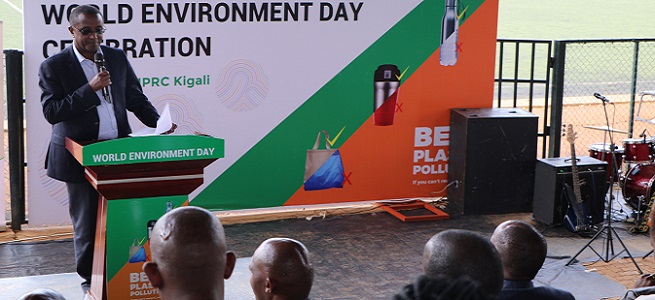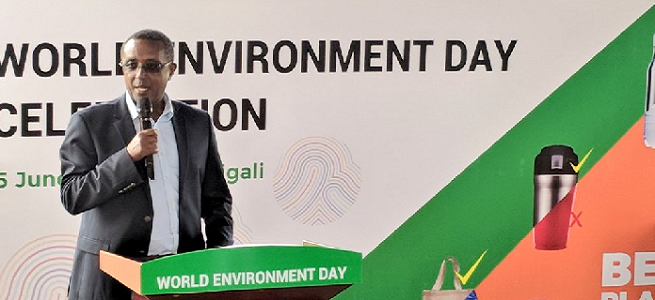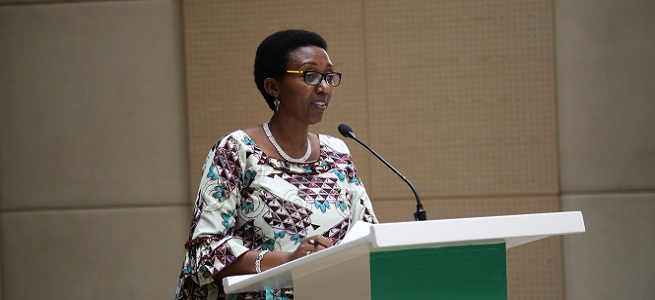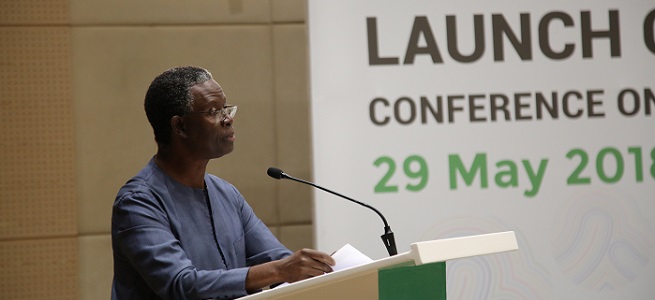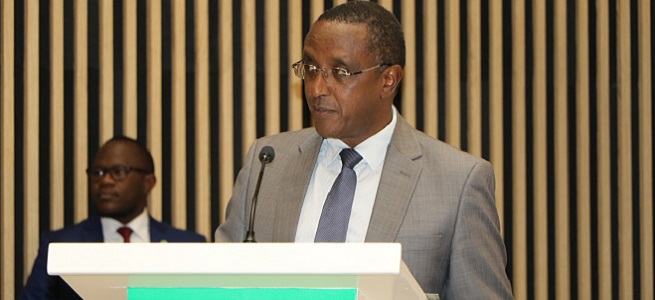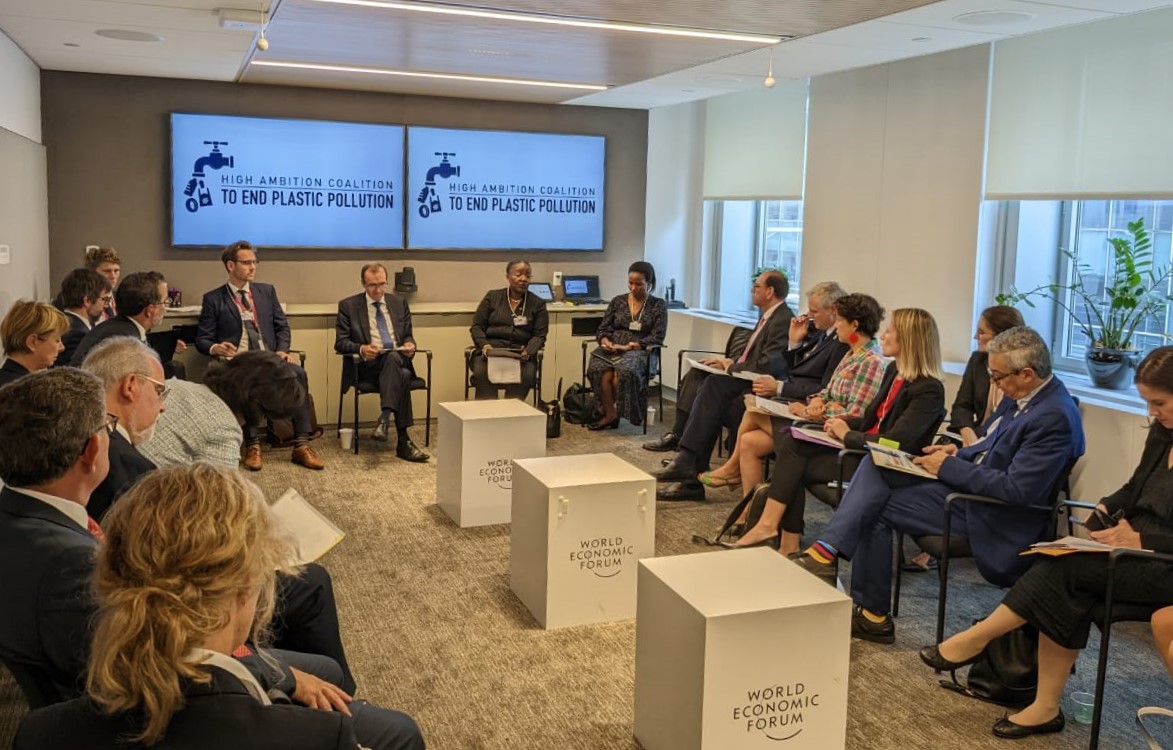
Representatives from 26 Nations meet to exchange views and priorities for a treaty to end plastic pollution
Ministers and representatives from 26 Nations from around the world met on September 22, 2022 in New York on the sidelines of United Nations General Assembly for the first ever Ministerial Meeting of the High Ambition Coalition to end plastic pollution by 2040.
The meeting co-chaired by Rwanda's Minister of Environment Dr. Jeanne d'Arc Mujawamariya and her Norwegian counterpart was an opportunity to exchange views and priorities for an ambitious treaty to end plastic pollution.
Plastic pollution has reached unprecedented levels and is projected to triple in the coming decades. This is an unacceptable burden to place on the planet and future generations. Business as usual is not an option and we need to build a different future.
Plastic consumption is projected to skyrocket in the coming decades, from 460 million tonnes in 2019 to 1,231 million tonnes in 2060. The volume of plastics in rivers and lakes will increase from 109 million tonnes in 2019 to 348 million tonnes in 2060, while plastics leaking into the ocean will rise from 30 million tonnes in 2019 to 145 million tonnes in 2060.
This is why Norway and Rwanda have formed the High Ambition Coalition to End Plastic Pollution. The Coalition was initiated following the historic UN Environment Assembly resolution 5/14 passed in March 2022 to start negotiations of an international legally binding instrument to end plastic pollution. The Coalition is a group of ambitious countries working for a truly effective global treaty that will establish common global rules, turn off the plastic tap and end plastic pollution by 2040.
To inform our deliberations and actions, we need a global roadmap based on the best science and the most effective policies for circular economy and waste management.
Our knowledge about plastic pollution is increasing rapidly. It is now estimated that 22 million tons of plastic pollution ends up in nature every year. We know that plastic pollution is found on the highest mountains and deepest trenches in the ocean. Scientists have found microplastic in our blood and within our lungs. Plastic particles are in our air, soil, food and water.
We know plastic pollution has adverse effects on the environment and human health. But we do not yet know the full extent of this harm. We need more information on the content and composition of chemicals in plastics in order to usher in a circular economy. We need more reliable statistics on the value chain of plastics, including production, consumption, waste management as well as trade in materials, products and waste. We need to better understand the environmental, economic and social costs as well as the benefits of ending plastic pollution and achieving a circular plastics economy.
Our first goal as the High Ambition Coalition is to restrain plastic consumption and production to sustainable levels. Research and analysis is needed on the control measures that will minimize demand for plastics and increase supply of recycled plastics. What are the most effective policies, economic mechanisms and financial incentives to reduce demand, improve product design to enable recycling, and shift towards new products made from recycled materials?
The Coalition’s second goal is to enable a vibrant circular economy for plastics that protects the environment and human health. The last thing we want in a circular economy is hazardous and harmful chemicals in an endless loop. The plastics treaty must ensure global criteria and standards for the design of plastic products so these can be recycled without risks to the environment and human health.
The third goal is to achieve environmentally sound management of plastic waste so that no waste is wasted. Around 75 percent of all plastic produced since 1950 has ended up in landfills or in nature. Three billion people currently do not have access to adequate waste management services. The growth in plastic waste generation is far outpacing investments in waste management. That is why we need to develop and share state-of-the-art technology that allows for best practice plastic waste recycling around the world.
Keeping plastic in the economy and out of the environment allows for a multitude of approaches, in line with different national circumstances. Waste management is a basic social service as well as a profitable business model. The treaty must establish provisions to incentivize innovation, investment, scaling-up and a just transition in the waste sector to end plastic pollution.
As Co-chairs of the High Ambition Coalition to End Plastic Pollution, we want an international plastics treaty fit for purpose, based on the best science and most effective policies. We invite the UN system, international organizations, civil society, academia, business, industry and finance to contribute to our common cause towards developing an ambitious and realistic roadmap to end plastic pollution by 2040.
Topics
More posts
Together, We can put an end to single-use plastics
The following was adapted from remarks given by the Minister of Environment, Vincent Biruta, at World Environment Day celebrations in Rwanda on 5 June…
Ijambo rya Ministiri w’Ibidukikije ku Munsi Mpuzamahanga w’Ibidukikije
IPRC Kigali | 5 Kamena 2018
Nyakubahwa Umuyobozi wungirije w’Umujyi wa Kigali ushinzwe ubukungu n'iterambere
Meya w’Akarere ka Kicukiro
…
Refusing single use plastics will make life and the planet better
Rwandans have been encouraged to avoid single-use plastics in order to reduce environmental pollution and save the planet from the dangers of plastic…
Remarks by the Director General of REMA at Launch of the National Environment Week
Hon. Minister of Environment
Hon. Minister of Trade & industries
One UN country Residence Coordinator
CEO PSF
Development Partners
Government…
Remarks by UN Resident Coordinator Dr Fode Ndiaye at Launch of National Environment Week
Nyakubahwa Minister of Environment, Dr. Vincent Biruta,
Honorable Ministers here present,
Senior Government Officials here present,
Honorable…
Remarks by Minister of Environment at Launch of National Environment Week
Fellow Ministers,
One UN Resident Coordinator,
Private Sector Federation Chairperson,
Distinguished guests,
Ladies and gentlemen
Mwaramutse!
It…
